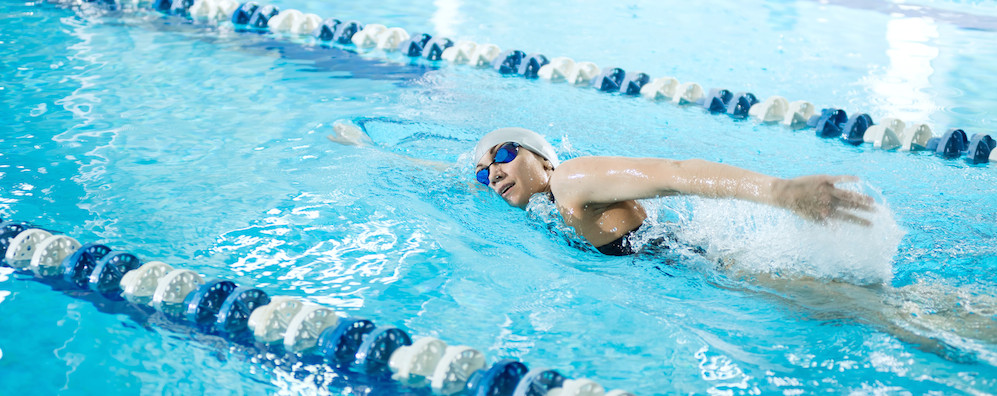
Dislocated Shoulder Treatment
Shoulder dislocation is a common injury in the active population. Whether you engage in high-contact sports like football and rugby or non-contact sports like swimming and volleyball, you’re equally susceptible to this especially painful injury. A shoulder dislocation occurs when the upper arm bone (humerus) comes out of the shoulder joint’s socket (glenoid). This joint is one of the most common areas of dislocation with dislocations commonly occurring in a forward and/ or downward direction. The recovery process of a shoulder dislocation depends on the cause and the severity of the dislocation.
What caused my dislocated shoulder?
A dislocated shoulder may be the result of a direct impact although it could also be the symptom of a more deep-rooted cause like shoulder instability or muscle weakness. Unfortunately, certain people are congenitally predisposed to shoulder instability. For others, shoulder instability may be best predicted by previous shoulder injuries.
When should I seek treatment for a dislocated shoulder?
A full dislocation will cause your humerus to rest out of normal resting position causing your muscles and ligaments to be distended. Moving your bone back in place will help the pain subside, but you’ll need to see a medical professional to understand the damage in your shoulder region. If you have recurrent shoulder instability or a rotator cuff tear, surgery may be required prior to starting physical therapy.
How can physical therapy help my dislocated shoulder?
Shoulder dislocations can be prevented with the help of a physical therapist who will help you gain proper shoulder stability and muscle strength around the shoulder blade, joint, and capsule. They’ll work with you to build a plan of care that is unique to your body, condition, and goals. The ultimate goal of physical therapy is to get you back to where you were before injury, and potentially beyond, by correcting any abnormal movement. For swimmers, a physical therapist will test that you can you bring your arm over head in a swim-type motion and for baseball players, you will be assessed on whether or not you can throw a ball with proper form. Your physical therapist may use a variety of treatment methods to address your dislocated shoulder, such as:
• Manual therapy to improve your range of motion and mobilize your shoulder, altering any abnormal movements that you may have. It will also aid in re-aligning the shoulder joint and facilitating proper muscle activation.
• Strengthening exercises to improve the strength of your rotator cuff and scapular stabilizers while improving posture to prevent any future injury.
• Sport-specific training to develop specialized recovery exercises that take into account the demands of your specific activity.
While in recovery, you should be able to engage in most of your normal daily activities. During the initial hours of after your shoulder dislocation, the use of a sling can help you avoid further injury in this acute phase. However, using a sling for a longer period of time may cause you to lose range of motion, become stiff, and sustain muscle atrophy. Overhead activities may cause pain and are best avoided during the early stages of recovery along with any long-range shoulder motions such as sweeping.
Physical therapists can provide the necessary tools to prevent and/or treat your dislocated shoulder, allowing you to return to your favorite activities pain-free and stronger than ever! To learn more about how to prevent shoulder injuries or to eliminate any current discomfort, book a physical therapy assessment today.
Request an Appointment“Before coming to Therapydia, my shoulder was completely unreliable. Now, my rotator cuff is stronger than ever and I have a new lease on life.”
Our Locations
SE Portland Location:
2808 E Burnside St.
Portland, OR 97214
Phone: (503) 850-2463
Fax: (503) 477-9395
Email: info@therapydiaportland.com
Lake Oswego Location:
4811 Meadows Rd #105
Lake Oswego, OR 97035
Phone: (503) 343-9320
Fax: (503) 908-1518
Email: hello@therapydiaportland.com
Beaverton Location:
3925 SW 153rd Dr #210
Beaverton, OR 97006
Phone: (971) 216-3816
Fax: (971) 727-8179
Email: hello@therapydiabeaverton.com
Pearl Location:
809 NW 11th Ave
Portland, Oregon, 97209
Phone: (971) 803-6401
Fax: (971) 254-8979
Email: hello@therapydiapearl.com


